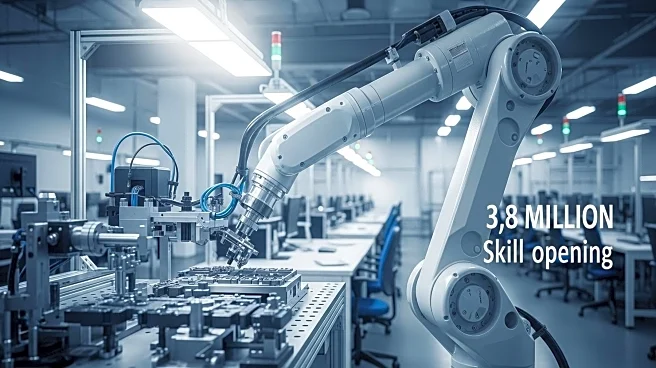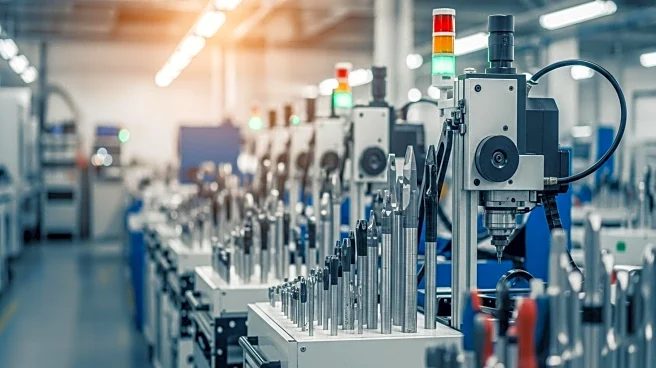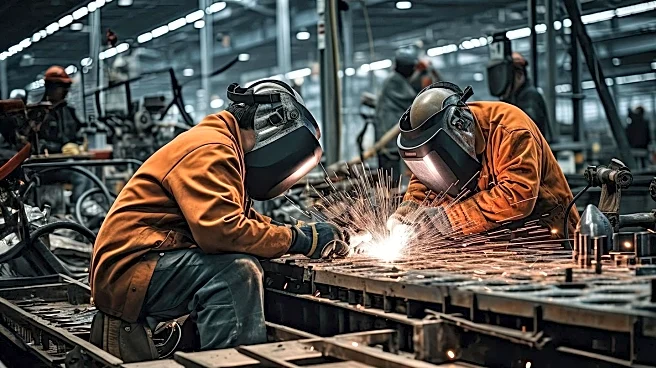What's Happening?
The U.S. manufacturing industry may need to fill up to 3.8 million jobs over the next decade, according to a study by The Manufacturing Institute and Deloitte. The sector has rebounded from the pandemic and is poised for growth, increasing demand for skilled workers such as statisticians, data scientists, and engineers. However, workforce challenges could leave 1.9 million roles unfilled. Attracting and retaining talent is a primary challenge for 65% of manufacturers, with many forming partnerships to strengthen recruitment efforts.
Why It's Important?
The potential job openings in manufacturing highlight the urgent need for skilled workers to sustain industry growth. The talent gap poses a risk to the sector's momentum, potentially slowing economic progress. Manufacturers are increasingly relying on apprenticeships and flexible work arrangements to attract and retain talent. Addressing these challenges is crucial for maintaining the competitiveness of U.S. manufacturing in the global market.
What's Next?
The Manufacturing Institute is implementing initiatives to close the skills gap, including high school internship toolkits and apprenticeship programs. These efforts aim to build a robust talent pipeline and ensure the sector's growth. Manufacturers must continue to innovate recruitment strategies and invest in workforce development to meet future demands.
Beyond the Headlines
The skills gap in manufacturing raises questions about the education system's ability to prepare students for future careers. There is a need for collaboration between industry and educational institutions to align curricula with industry needs. The cultural shift towards digital skills in manufacturing may redefine traditional job roles and require adaptation from workers.










